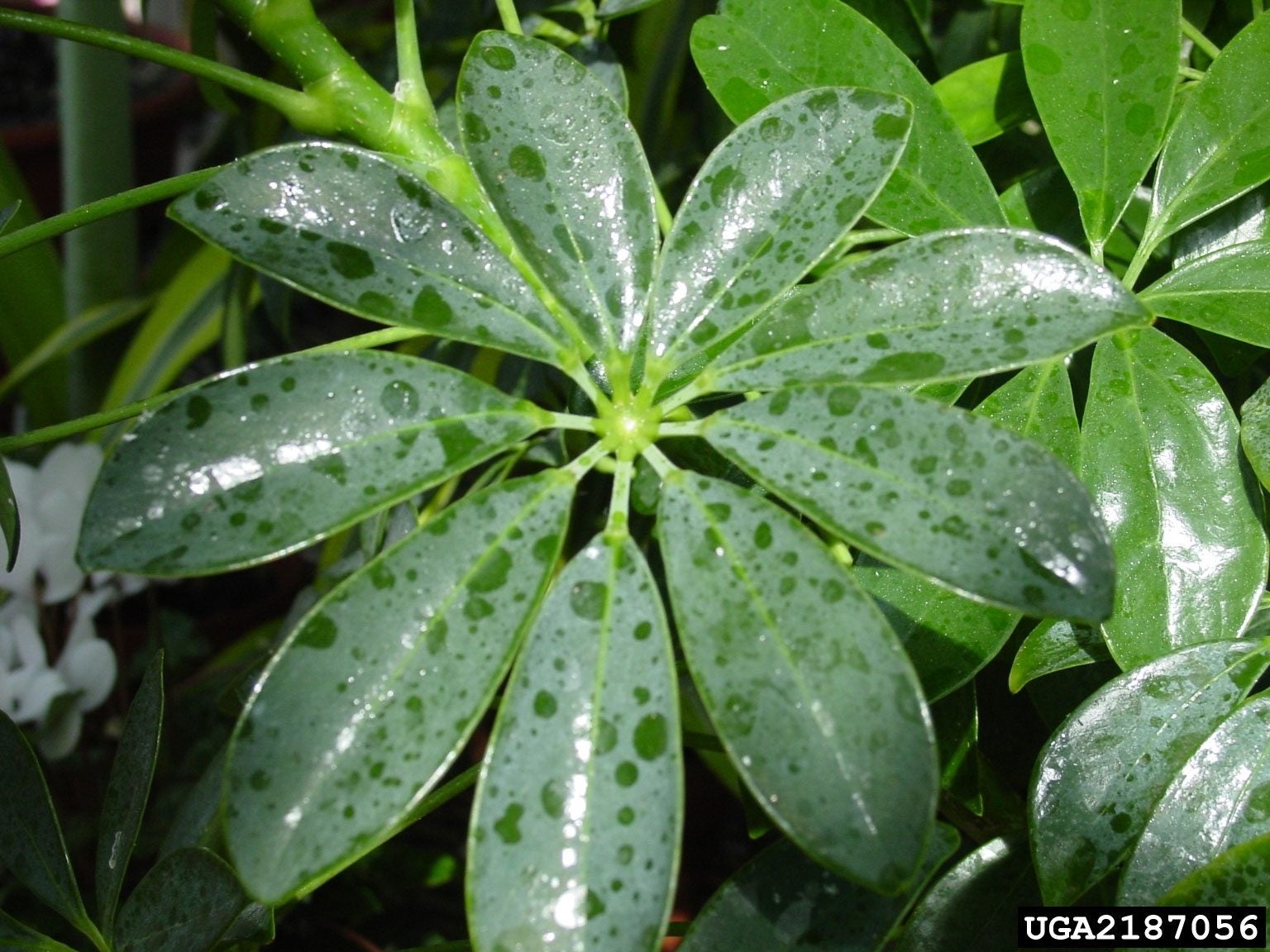Sticky Schefflera Plant: Why Is My Schefflera Sticky


Sign up for the Gardening Know How newsletter today and receive a free copy of our e-book "How to Grow Delicious Tomatoes".
You are now subscribed
Your newsletter sign-up was successful
Scheffleras are ornamental foliage plants. In most zones, they are only suitable as houseplants because they are extremely tender. The wide leaf clusters resemble the spokes of an umbrella and have given them the nickname, umbrella tree. Schefflera plants are remarkably tolerant houseplants and do well in a variety of situations; however, they are also prey to insect pests. Sticky schefflera leaves are likely a symptom of some hitchhiking bugs that are sucking the life out of your prized plant.
Why is my Schefflera Sticky?
Scheffleras have gorgeous, large, glossy leaves arranged in a circle around a central stem. Each of the leaflets that make up the entire umbrella design can get up to 12 inches (31 cm.) long in mature plants. Indoor plants benefit from having the leaves dusted and it is during this activity that you may notice something new on the plant-- sticky stuff on schefflera foliage. The culprits may be several sucking insect pests which deposit excrement called honeydew on their host plant's foliage, creating sticky schefflera leaves. Look under the leaves and on the stems of a schefflera with sticky substance on its leaves. The problem stems from very small insects that feed on the sap of the plant and slowly reduce its vigor. The honeydew leaves behind a shiny, sticky mess. You can wash off the honeydew and get rid of some of the bugs, but just a few left behind will quickly colonize and before you know it you will have a sticky schefflera plant again. The most common culprits that cause sticky schefflera leaves are aphids, mites, or mealybugs. If you have an ant problem in the house, you may also notice ants in and around the plant. This is because ants “farm” aphids to keep them around for the honeydew, which is an ant food favorite.
What to Do About Sticky Schefflera Leaves
Any schefflera with sticky substance on the leaves can be initially treated by taking it outdoors and blasting the leaves with water. Aphids rinse off the leaves and this treatment usually works well if you follow up at the first sign of the pests. Systemic treatments formulated for houseplants work to prevent the pests and subsequent sticky stuff on schefflera. It translocates from roots to stem to leaves, so that the insects intake it through their feeding activity. A kinder, gentler solution when children and pets are present is neem oil. This natural oil comes from a tree native to India. It has both toxic and repellent properties to many insects but is safe for use in the home.
Recovery for a Sticky Schefflera Plant
After a successful treatment and all signs of insect pests are gone, it is time to assess the damage. If your plant was dropping leaves, discoloring, or failing to produce new growth, it is likely the insects damaged its health to some degree. That means you need to baby a plant that has been affected. Once the schefflera with sticky substance has been cleaned up and the pests have been eradicated, ill health may continue. Give the plant a gentle fertilizer every two weeks such as diluted compost tea, diluted fish, or seaweed fertilizer. Water the plant regularly when the top 3 inches (8 cm.) of soil are dry. Repot plants that have poor soil, using a good potting soil with organic amendment. Over the course of a few weeks, you should see improvement in your plant and it will be its old glossy self again.
Sign up for the Gardening Know How newsletter today and receive a free copy of our e-book "How to Grow Delicious Tomatoes".

Bonnie Grant is a professional landscaper with a Certification in Urban Gardening. She has been gardening and writing for 15 years. A former professional chef, she has a passion for edible landscaping.